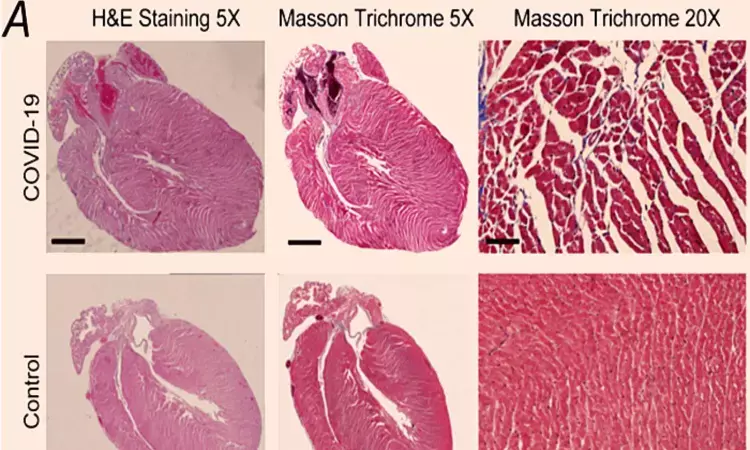- Home
- Medical news & Guidelines
- Anesthesiology
- Cardiology and CTVS
- Critical Care
- Dentistry
- Dermatology
- Diabetes and Endocrinology
- ENT
- Gastroenterology
- Medicine
- Nephrology
- Neurology
- Obstretics-Gynaecology
- Oncology
- Ophthalmology
- Orthopaedics
- Pediatrics-Neonatology
- Psychiatry
- Pulmonology
- Radiology
- Surgery
- Urology
- Laboratory Medicine
- Diet
- Nursing
- Paramedical
- Physiotherapy
- Health news
- Fact Check
- Bone Health Fact Check
- Brain Health Fact Check
- Cancer Related Fact Check
- Child Care Fact Check
- Dental and oral health fact check
- Diabetes and metabolic health fact check
- Diet and Nutrition Fact Check
- Eye and ENT Care Fact Check
- Fitness fact check
- Gut health fact check
- Heart health fact check
- Kidney health fact check
- Medical education fact check
- Men's health fact check
- Respiratory fact check
- Skin and hair care fact check
- Vaccine and Immunization fact check
- Women's health fact check
- AYUSH
- State News
- Andaman and Nicobar Islands
- Andhra Pradesh
- Arunachal Pradesh
- Assam
- Bihar
- Chandigarh
- Chattisgarh
- Dadra and Nagar Haveli
- Daman and Diu
- Delhi
- Goa
- Gujarat
- Haryana
- Himachal Pradesh
- Jammu & Kashmir
- Jharkhand
- Karnataka
- Kerala
- Ladakh
- Lakshadweep
- Madhya Pradesh
- Maharashtra
- Manipur
- Meghalaya
- Mizoram
- Nagaland
- Odisha
- Puducherry
- Punjab
- Rajasthan
- Sikkim
- Tamil Nadu
- Telangana
- Tripura
- Uttar Pradesh
- Uttrakhand
- West Bengal
- Medical Education
- Industry
Can COVID-19 cause problems in the heart? Study provides insights

USA: A research team from the US observed increases in oxidative stress (harmful production of unstable molecules), signals of inflammation, and changes in calcium in heart tissue from patients who had COVID-19.
They also detected adverse changes to a protein called RyR2, responsible for regulating the heart’s calcium ion levels. Like all muscle cells, the heart muscle needs calcium ions to contract. The heart’s system for managing calcium ions is essential for the coordinated contractions of the atria and ventricles that pump blood throughout the body. When calcium in the heart becomes dysregulated, it can cause arrhythmias or heart failure.
COVID-19 infections can cause potentially life-threatening heart issues. Studies suggest that people with COVID-19 are 55% more likely to suffer a major adverse cardiovascular event, including heart attack, stroke and death, than those without COVID-19. They’re also more likely to have other heart issues, like arrhythmias (abnormal heart rhythms) and myocarditis (heart muscle inflammation). Andrew Marks, a cardiologist and biophysics professor at Columbia University, and Steven Reiken, a research scientist in Marks’ lab, and colleagues have studied some of the changes in the heart that could lead to these problems. Reiken will present their work on Monday, February 20, at the 67th Annual Biophysical Society Meeting in San Diego, California.
To further study changes to the heart, they used a mouse model infected with COVID-19. They observed changes to the heart tissue, including immune cell infiltration, collagen deposition (indicative of injury), death of heart cells, and blood clots. They also measured changes to the heart proteome—the proteins that are expressed by the heart cells-and found patterns consistent with changes observed in human hearts that were infected with COVID-19, as well as markers of cardiomyopathy, which can make it harder for the heart to pump blood to the body and can lead to heart failure.
“The more awareness you build around particular aspects of a disease, the more likely you are to improve the care of patients. And doctors should be aware of heart changes related to COVID-19 infections and should be looking for them,” Marks said.
Ultimately, “we want to really figure out what's causing the heart disease and how to fix it,” Marks said. Understanding changes at the molecular level may reveal drug targets that could improve cardiac symptoms related to COVID-19 and help healthcare professionals diagnose and treat these issues more effectively. Additionally, understanding the cardiac complications of COVID-19 can help public health officials make more informed decisions about how to respond to the COVID-19 pandemic, especially in advising those at higher risk for heart problems.
Reference:
How COVID-19 can impact the heart Biophysical Society, Meeting 2023 Biophysical Society Meeting.
Dr Kamal Kant Kohli-MBBS, DTCD- a chest specialist with more than 30 years of practice and a flair for writing clinical articles, Dr Kamal Kant Kohli joined Medical Dialogues as a Chief Editor of Medical News. Besides writing articles, as an editor, he proofreads and verifies all the medical content published on Medical Dialogues including those coming from journals, studies,medical conferences,guidelines etc. Email: drkohli@medicaldialogues.in. Contact no. 011-43720751


